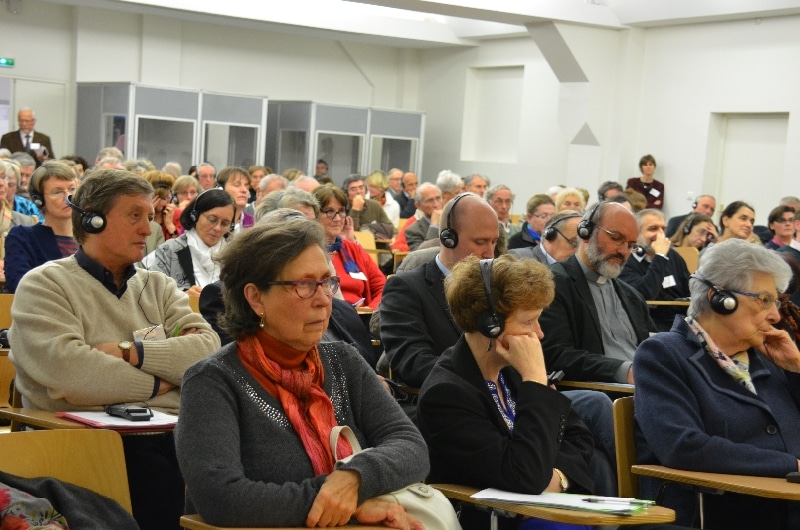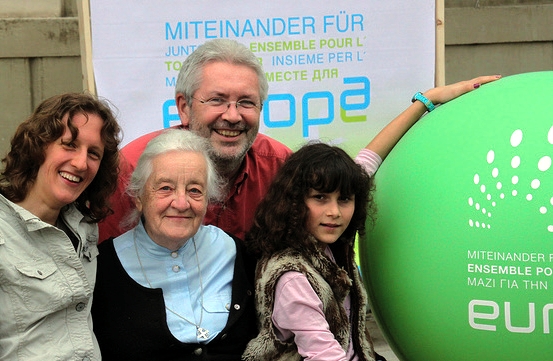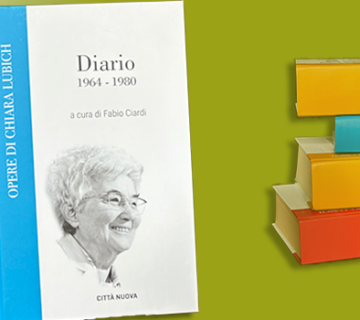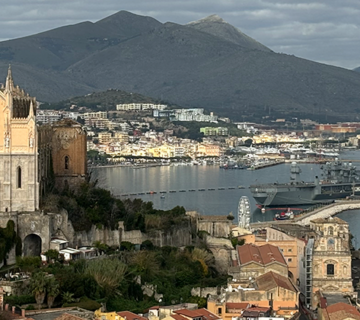 “Resignation and weariness do not belong to the soul of Europe; even our problems can become powerful forces of unity”
“Resignation and weariness do not belong to the soul of Europe; even our problems can become powerful forces of unity”
For the majority of Europeans, May 9 is an occasion to celebrate the values of integration, unity and peace, as this date marks the anniversary of the historical Schuman declaration that gave birth to the European Union; but for others it marks the time when Stalin declared victory over Germany on May 9, 1945 and rights started to be deprived under the Soviet rule.
The innovative process of integration, which Europe dared to start sixty years ago, should be confronted against this historical background even today. Considering the present crisis and the contradictions inherent in the cultural and social paradigms that peoples in Europe are experiencing, one is bound to ask: is the European experience still valid? Do Europeans still want to be together?
For Pasquale Ferrara, a diplomat, a scholar and a lecturer in International Relations and Diplomacy, “the European vision of integration – which consists of bringing together not so much the leaderships, but the political will of the different countries to govern jointly over phenomena that are beyond control of individual states – is still one of great insight”. Through integration “Europe demonstrates that even today multilateralism can have an added value if attention is not centred on the state but on the political function it performs to provide for the needs of its citizens in a global and transnational world”.
 “A Europe that is able to stay together and thus rediscover what more can be done for the world in a better way” – these words of Maria Voce summerize the Focolare Movement’s perspective while contributing towards ongoing processes in Europe. An example of this commitment is “Together for Europe”, which brings together more than 300 communities and movements that belong to different Christian Churches. These form a network which pursues shared goals and promotes a culture of reciprocity, which stimulates individuals and peoples to welcome and get to know each other, to be reconciled and to offer mutual support. “’Together for Europe’ is not an end in itself, but its nature is exquisitely political in the noblest sense of the word: it strives for the good of that part of humanity which is Europe; it aims at the revival of its roots and at its awareness to contribute to the rest of the world” .
“A Europe that is able to stay together and thus rediscover what more can be done for the world in a better way” – these words of Maria Voce summerize the Focolare Movement’s perspective while contributing towards ongoing processes in Europe. An example of this commitment is “Together for Europe”, which brings together more than 300 communities and movements that belong to different Christian Churches. These form a network which pursues shared goals and promotes a culture of reciprocity, which stimulates individuals and peoples to welcome and get to know each other, to be reconciled and to offer mutual support. “’Together for Europe’ is not an end in itself, but its nature is exquisitely political in the noblest sense of the word: it strives for the good of that part of humanity which is Europe; it aims at the revival of its roots and at its awareness to contribute to the rest of the world” .
“Together for Europe” is organizing a European event that will take place in Munich from June 30 to July 2, 2016. During the first two days, 36 round tables and forums will offer the opportunity to share experiences and views on issues concerning Europe. An outdoor rally will conclude the event on the third day. Pope Francis and the Ecumenical Patriarch Bartholomew I will be present through their video messages. Jean-Claude Junker, President of the European Commission, and Thorbjørn Jagland, Secretary General of the Council of Europe, granted their patronage. (http://www.together4europe.org/).
“At a time when Europe is mostly needed, the more it seems to lack the ability to face these challenges”, comments Ferrara, while referring to the lack of political figures with a broad vision. He concludes: “But, are we looking in the wrong direction? Maybe we think that one or more political leaders are needed, while instead we must give more value to civil society, focusing more on youth and their social and political creativity, on their ability to imagine the “Old” continent as a “new” one”.
Source: Press releases


 Italiano
Italiano Español
Español Français
Français Português
Português




No comment